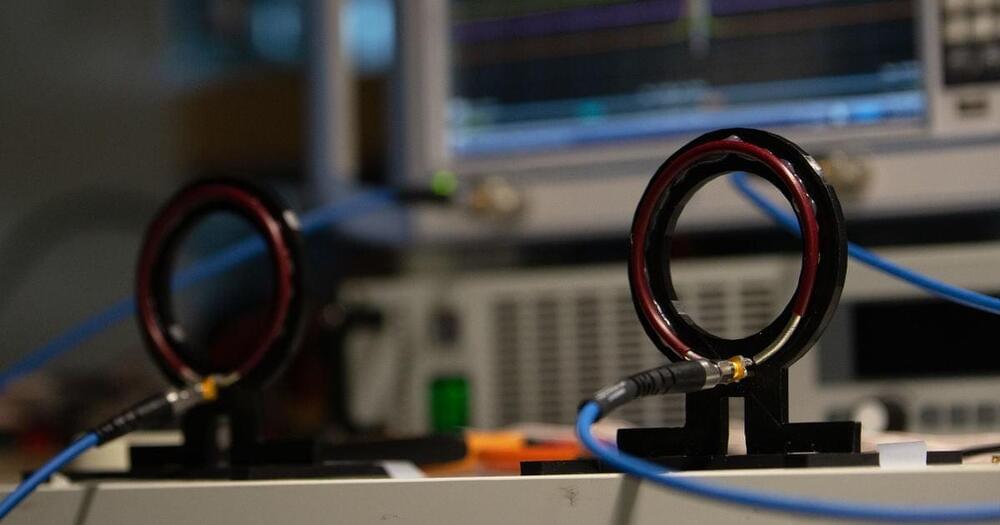A better way to wirelessly charge over long distances has been developed at Aalto University. Engineers have optimized the way antennas transmitting and receiving power interact with each other, making use of the phenomenon of “radiation suppression”. The result is a better theoretical understanding of wireless power transfer compared to the conventional inductive approach, a significant advancement in the field.
Charging over short distances, such as through induction pads, uses magnetic near fields to transfer power with high efficiency, but at longer distances the efficiency dramatically drops. New research shows that this high efficiency can be sustained over long distances by suppressing the radiation resistance of the loop antennas that are sending and receiving power. Previously, the same lab created an omnidirectional wireless charging system that allowed devices to be charged at any orientation. Now, they have extended that work with a new dynamic theory of wireless charging that looks more closely at both near (non-radiative) and far (radiative) distances and conditions. In particular, they show that high transfer efficiency, over 80 percent, can be achieved at distances approximately five times the size of the antenna, utilizing the optimal frequency within the hundred-megahertz range.
‘We wanted to balance effectively transferring power with the radiation loss that always happens over longer distances,’ says lead author Nam Ha-Van, a postdoctoral researcher at Aalto University. ‘It turns out that when the currents in the loop antennas have equal amplitudes and opposite phases, we can cancel the radiation loss, thus boosting efficiency.’










Comments are closed.